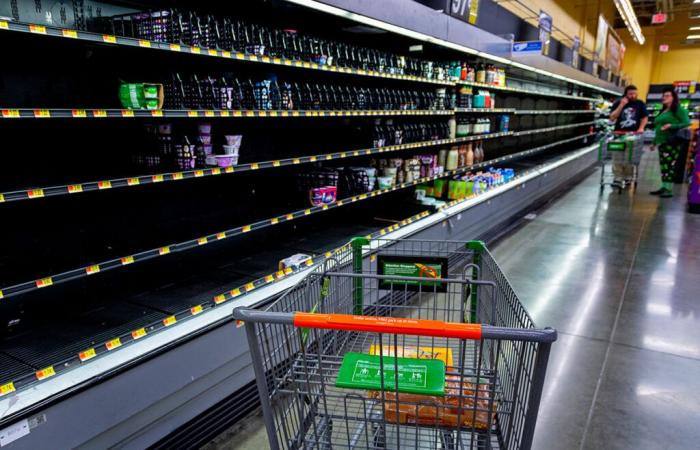The resignation of Michel Barnier’s government on December 4, 2024 caused a lot of noise, especially with certain decisions that directly affect the eating habits of the French. Among them, the refusal to extend an exemption on the expanded use of meal vouchers for food purchases. While this measure was to be extended until 2026, it was stopped dead in its tracks, sparking heated discussions about its consequences for consumers and the food sector.
What is happening in politics?
In France, things have been moving quite a bit lately. A motion of censure brought down the Barnier government after months of political and economic tensions. Before his departure, one decision particularly attracted attention: the blocking of an exemption allowing the use of meal vouchers for more food products. Originally scheduled to run until 2026, this expansion allowed users to purchase a wider variety of products.
This decision comes at a time when the rules around meal vouchers have already changed. The National Commission for Meal Vouchers has tightened the conditions of use, which has not failed to provoke a reaction from both consumers and traders.
The new rules: what’s changing?
Recent directives from the National Meal Voucher Commission have put in place significant restrictions on what can be purchased with these vouchers. From now on, it is impossible to buy raw meat or fresh fish with it. On the other hand, the ceiling remains at 25 euros per day, still offering a little margin to users.
Here’s what you can still buy:
- conserves
- ready-to-heat ready-made meals such as sandwiches, pizzas, quiches and other gratins
- bakery (except pastries!)
- processed or ready-to-eat meats and fish: roast chicken, smoked salmon, etc.
- certain frozen or vacuum-packed products
- whole or cut fruit
- individual compotes
- juice or mixed salads/bag
- fresh soups
- cold meats (ham, pâté)
- dairy products (ready-to-eat yogurts and cheeses)
What is offside and why it matters
On the other hand, certain products remain prohibited for purchase with these titles: raw meat and fresh fish for example but also pasta and rice requiring cooking. Also excluded are oil, flour, butter and eggs as well as ice cream or sorbets; without forgetting alcoholic drinks!
These restrictions could change the way we use our meal vouchers every day. For some it is a return to a more classic use centered on fast or ready-to-eat food; for others it is seen as too strict a limitation that could affect their food budget…
A debate that promises to be hot in the Senate
With all these concerns around the new restrictions now comes a proposal to extend extended use in our supermarkets – it will be discussed in the Senate from January 15! This debate could well lead to a relaxation if sufficiently supported by our dear parliamentarians…
These regulatory changes are not just technical; they directly affect our daily eating habits as well as our purchasing power in the face of current economic challenges… While this debate continues on the French political scene – both on the government side and among the public – let us remain attentive to future developments likely to have a lasting influence on our eating lifestyle modern !
A reaction? Leave a comment
Did you like this article? Subscribe to our free Newsletter for engaging articles, exclusive content and the latest news.






